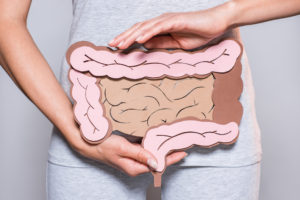 You might not want to think about colon health. I get it. But neglecting it can cause some serious problems.
You might not want to think about colon health. I get it. But neglecting it can cause some serious problems.
The colon is a crucial part of your digestive system and a series of conditions can lead to improper function or disease. Sometimes it’s the big ones like ulcerative colitis, Crohn’s, diverticular disease, or irritable bowel syndrome. Other times, it can be even worse.
Advertisement
A healthy colon is about far more than genetics. Weight and diet play a major role in colon health, and two ingredients might be central to its condition: fiber and water.
Constipation doesn’t do your colon any favors. It allows waste to sit in your digestive tract for extended periods and puts pressure on the tissue in the region.
Regular constipation can cause hemorrhoids and small pouches to form in the colon, potentially leading to diverticular disease. The only way to prevent this is by eating sufficient fiber and drinking enough water.
Fiber and water work to keep waste moving through you regularly. This can have a positive effect on colon health in a few ways.
The first is that along with promoting regularity, fiber feeds the healthy bacteria in your colon. There is research to suggest that a healthier population of gut bacteria can reduce the risk of poor colon health.
Getting fiber from a variety of sources is your best bet. Fruit and vegetables should be the primary picks, but whole grains, beans, and legumes are great, too. Shooting for 35 grams per day should optimize fiber’s benefits.
Fiber can’t do it by itself, however. Without enough water, your fiber can’t properly soften stool and move it through your digestive system. The two work together in unison to promote gut health and contribute to a healthy colon.
Advertisement
Increasing fiber intake can have a number of residual benefits that may promote colon health, too. Fiber is virtually always found in very nutrient-dense foods, so you can bet you’ll be getting some anti-inflammatory and antioxidant benefits, as well.
Blueberries, apples, pears, leafy greens, peas, beans and more, are all nutrient-dense sources of fiber and water.
If you want to protect your colon and lower your risk for serious disease, getting more fiber and water should be at the top of your list.
